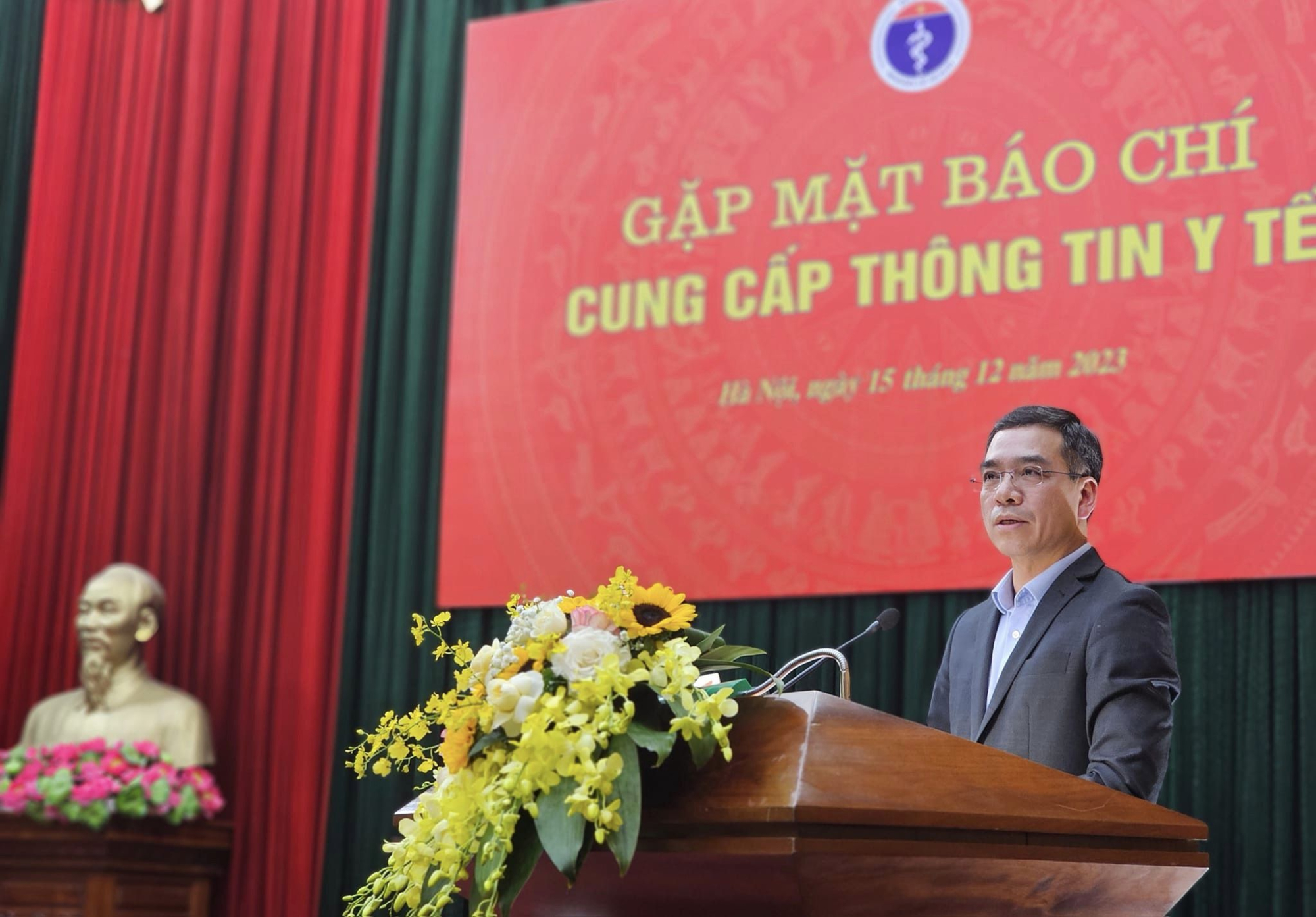On the afternoon of December 15, the Ministry of Health held a regular press conference to provide information on medical activities and health issues of public concern.
One of the hot issues recently is that some localities and medical facilities still lack medicine and medical supplies.
At this press conference, Mr. Ha Anh Duc, Chief of Office of the Ministry of Health, shared about this issue.

Mr. Ha Anh Duc, Chief of Office of the Ministry of Health at the press conference (photo TL).
Specifically, according to the report presented by Mr. Ha Anh Duc, regarding national centralized bidding and price negotiation, in 2022-2023, the National Center for Centralized Drug Procurement (Center) organized and approved the results of national centralized bidding for 100 drugs and the Ministry of Health approved the results of price negotiation for 64 original brand-name drugs.
The list of drugs subject to national centralized bidding and price negotiation are drugs with a large proportion of use in terms of value or quantity at medical facilities nationwide and have a long validity period (24 months).
Accordingly, medical facilities nationwide will be able to implement the results of the national centralized bidding until August 31, 2024 and negotiate prices until the end of 2024 and early 2025.
"For drugs that won the national centralized bidding and price negotiations, there has been no shortage of drugs so far, and most of them are fully supplied to medical facilities," said Mr. Ha Anh Duc, Chief of Office of the Ministry of Health.
According to this person, the results of the national centralized bidding have contributed to stabilizing the drug supply situation in localities, especially for drugs with large demand such as antibiotics, digestive, cardiovascular and diabetes drugs.
According to the report, the implementation of the results of the national centralized bidding and price negotiations of medical facilities has been completed from ½ to 2/3 of the implementation time depending on each bidding package and the implementation rate of medical facilities has reached an average of about 60% of the allocated number of winning drugs.
The fact that many medical facilities have purchased drugs and some medical facilities have not been able to purchase drugs is not due to the Ministry of Health's guidance document and is not due to the impact of the results of national centralized bidding and price negotiations.
In 2023, the Center organized two workshops to share experiences on centralized bidding and price negotiation, and 9 training courses to improve drug bidding capacity to support the removal of difficulties and obstacles in the drug bidding process.
At the same time, the Center also organizes many delegations to supervise the supply of drugs at medical facilities according to the results of selecting the winning drug supplier at the national centralized bidding and negotiating prices according to regulations.
"Through discussion, the lack of results in drug bidding for the list of drugs that medical facilities organize their own bidding is mainly due to the objective reason that the human resources for drug procurement at the units are still limited, lacking officers and employees with expertise in bidding work.
Many officers and employees have to both take on medical examination and treatment tasks and participate in bidding for the purchase of medicines, medical supplies and equipment," Mr. Ha Anh Duc shared.
Thus, it can be seen that the current shortage of drugs at local medical facilities is due to the lack of timely procurement bidding, so it is necessary to promptly overcome it so as not to affect the rights of patients.
Source

























![[Photo] National Assembly Chairman attends the seminar "Building and operating an international financial center and recommendations for Vietnam"](https://vphoto.vietnam.vn/thumb/1200x675/vietnam/resource/IMAGE/2025/7/28/76393436936e457db31ec84433289f72)











































































Comment (0)